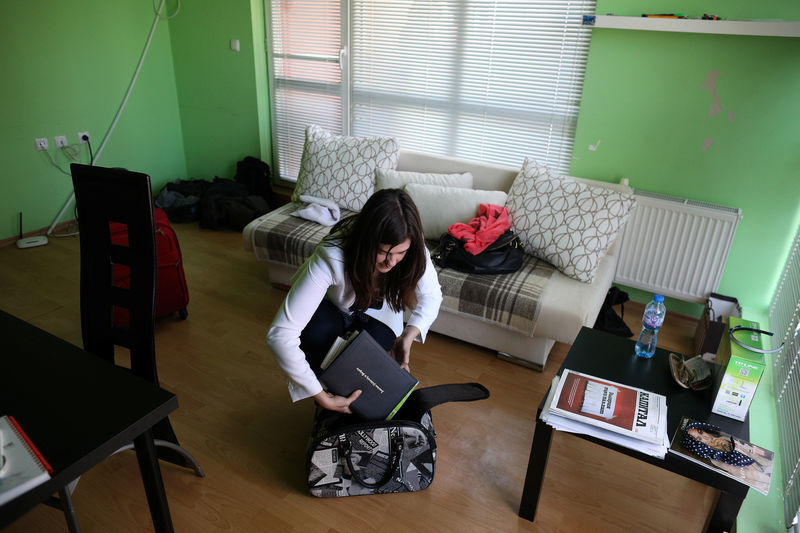By Tsvetelia Tsolova
SOFIA (Reuters) - After trying for 20 years to eke out a living as the owner of a driving school in Bulgaria, Zlatinka Zlateva finally gave up last September and took a job as a nanny in Britain.
"I got so angry about everything. I closed the school and two days later I flew to London," said Zlateva, 51. "In Britain, on a minimum wage, I can afford a trip to Paris. In Bulgaria, you work, you own a company, and when you tot everything up, you realise you have nothing."
While emigration to Britain from most other ex-communist members of the European Union slowed last year as Britain debated whether to leave the bloc and then voted to do so in a June referendum, the number of Bulgarians and Romanians moving there hit the highest number on record.
Like Zlateva, many Bulgarians choose a one-way ticket abroad out of frustration over low wages and a lack of hope that politicians can tackle pervasive corruption.
Sunday's parliamentary election - the third in four years - has again put the spotlight on Bulgaria's patchy economic record since the fall of communism in 1989, in particular its relatively low living standards after years of stop-go reforms.
The average monthly salary, at 962 levs (425 pounds), remains the lowest in the 28-nation EU and compares with a minimum wage in Germany - a popular destination for all kinds of Bulgarian workers, from doctors to builders - of 1,440 euros ($1,553).
The Balkan country's population has dropped by 20 percent since 1989 to 7.2 million. In 2015, about 30,000 Bulgarians joined already large expatriate communities in Germany, Spain, Britain and other Western countries.
While most political parties - from nationalists to pro-market liberals - spout populist slogans on the election campaign trail about hiking wages and pensions, there is little talk of the tough reforms needed to tackle graft, attract foreign investment and build sustainable economic growth.
VOTING WITH THEIR FEET
So Bulgarians are still voting with their feet - even continuing to move to Britain despite the uncertainty about whether they will be able to remain after Brexit. Prime Minister Theresa May will kickstart EU divorce proceedings next week.
British statistical data showed some 74,000 Bulgarians and Romanians arrived in Britain during the year to September 2016 - a period that included three months after the Brexit vote. This marks an increase of 19,000 over the previous 12 months.
Teodora Yolcheva, 31, a public relations professional, who had been toying with the idea of emigration for a year, did not think twice before taking a marketing job in London's financial district, Canary Wharf, this month, when an opportunity arose.
"I will not miss this depressing feeling that you live like a hamster in a wheel ... You run and make an effort and it leads you nowhere," she said.
Commenting on the continued outflow of Bulgarians to Britain, Yavor Aleksiev, an economist at the Sofia-based Institute for Market Economy, said it may reveal the impact of the impending Brexit on people's private or career calculations.
"People who have already settled there are trying to bring in their families, (and) people who had intended to go are now finally doing so, to avoid possible labour market restrictions(post-Brexit)," he said.
Not that all the news from Bulgaria is bad. The economy grew by a healthy 3.4 percent last year and the centre-right GERB government ran a budget surplus. GERB is currently running neck-and-neck with the Socialists in opinion polls.
Bulgaria also has one of the lowest levels of public debt in the EU, and although wages are low, the cost of living is also very low by west European standards, helping to lure foreign tourists to its beaches, mountain resorts and other attractions.
"If the election in 2014 was about reforms, this time around it is about incomes and spending," said Dimitar Ganev, a political analyst with research centre Trend.
"The macroeconomic situation is now stable, there is money available and politicians are taking advantage of that (to promise voters higher living standards).
"People are tired of sacrifices."
